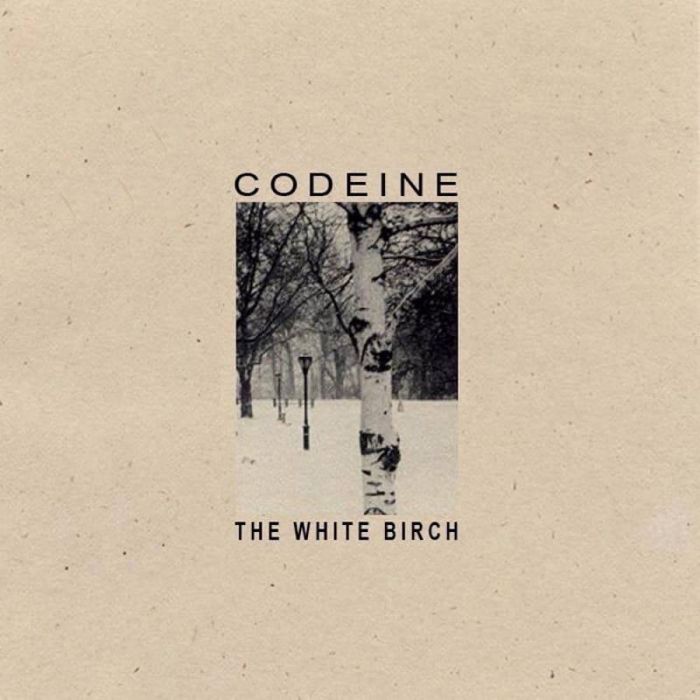The White Birch by Codeine (Review)

The worst period of my life occurred during the summer of 1996. My roommate had just gotten married and moved out, so I was living by myself. All of my friends were gone on various vacations and trips. I had just broken up with the girl that, at one time, I was sure I was going to marry. I had just started a new job, but was still so poor that my food for the day usually consisted of a bag of chips and a can of pop for lunch and a grilled cheese sandwich or pancakes for dinner. I spent my free time in the computer labs on campus, reading Michael Moorcock, Albert Camus, and H.P. Lovecraft, or listening to music. I had a phone that never rang and no television. And when I stayed up late during the humid nights sweating through every pore imaginable, staring at my sterile, white walls, I was certain I was about to go insane.
But it was during this time that I made one of the greatest musical discoveries of my life. I scrimped together enough money to purchase Low’s I Could Live In Hope and listening to it was like listening to the angels themselves. I can still feel the first shiver I got listening to Mimi and Alan’s voices merge in beautiful harmony, and somehow everything was okay. It was also during this time that I saw a used copy of Codeine’s The White Birch in a used record store. I knew that they inhabited the same musical terrain as Low, but never got around to buying it at that time.
Listening to The White Birch now, I’m glad I didn’t pick it up then. I Could Live In Hope eased my loneliness. The White Birch would’ve pushed me over the edge. Here’s an album so devoid of any sense of triumph or victory. It’s as spartan and sparse as they come. Although you can draw comparisons to Low, due to the basic slowcore nature of the music, Codeine’s music is sterile and austere like a cold concrete room lit by a single fluorescent light. Stephen Immerwahr’s vocals are weary and frayed, like an old sweater that’s seen one too many winters. And though the music moves at a drifting pace, anchored by Douglas Scharin’s drums, John Engle will occasionally drive the song home with chords that rip from his guitar like the cold winter wind that cut through the scarf I wore as I walked to work in the middle of January.
But it’s not this sense of barrenness that ultimately turns me off. It’s the fact that the band sounds so bored while playing it. It’s possible to create music that is cold and foreboding, and yet still produce quiet moments of beauty. Check out Low’s Songs For A Dead Pilot or even The Cure’s Faith and Seventeen Seconds. Those are, without a doubt, some of the most depressing and stark albums I’ve ever heard, and yet they’re rife with moments of reflective beauty.
The White Birch is as plain as its name suggests. Picture a wintry landscape several days after the snow has fallen. Cars have reduced the snow to dull grey mountains of slush, people trudge outside with their heads bent down against the wind, and the sky is reduced to greyscale. I’ve been in a place like that, physically and emotionally, and though it made me stronger as an individual, it’s not a place I want to visit with much frequency. However, The White Birch seems stuck there, either unwilling to leave or unable to believe that there’s a way out.